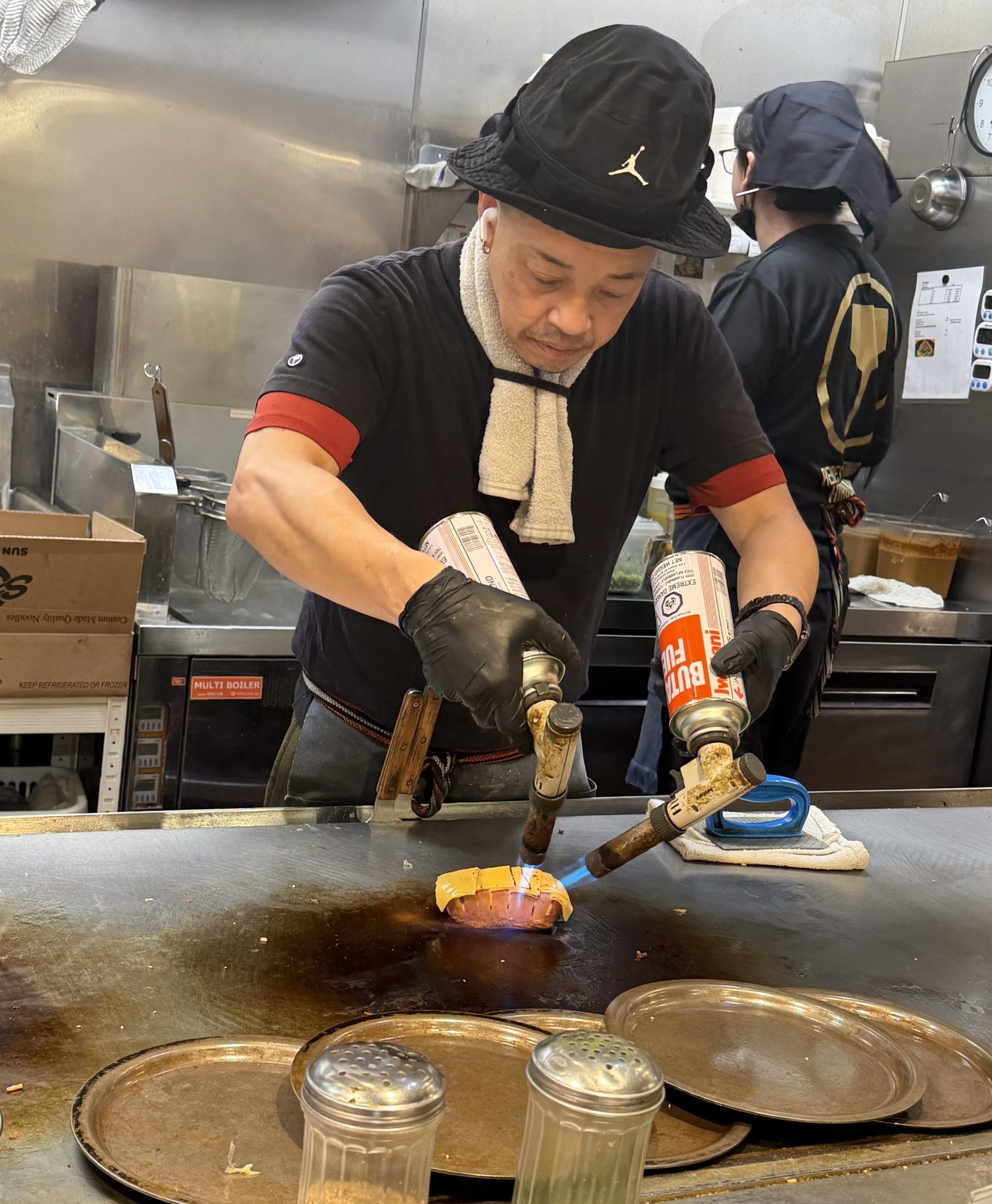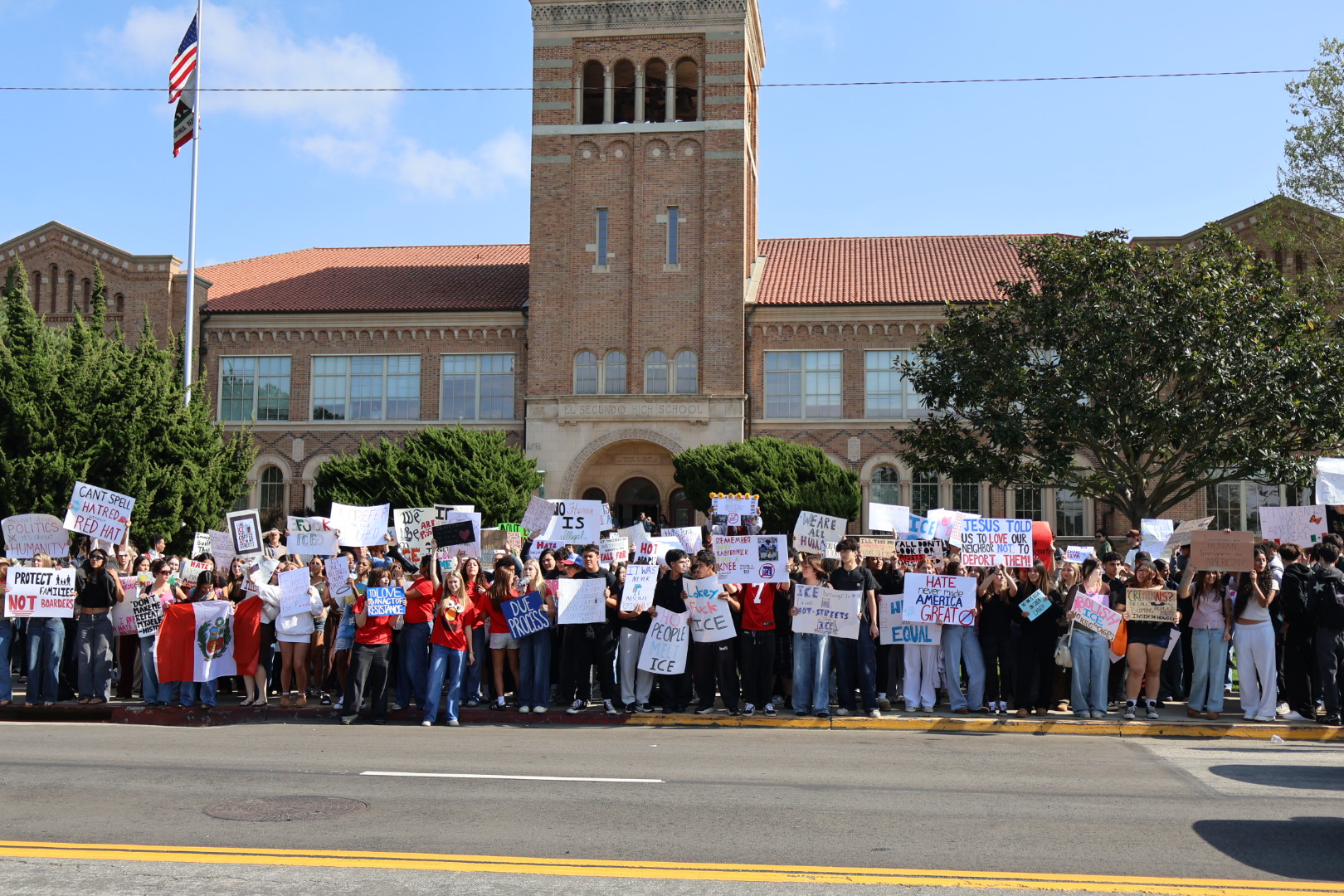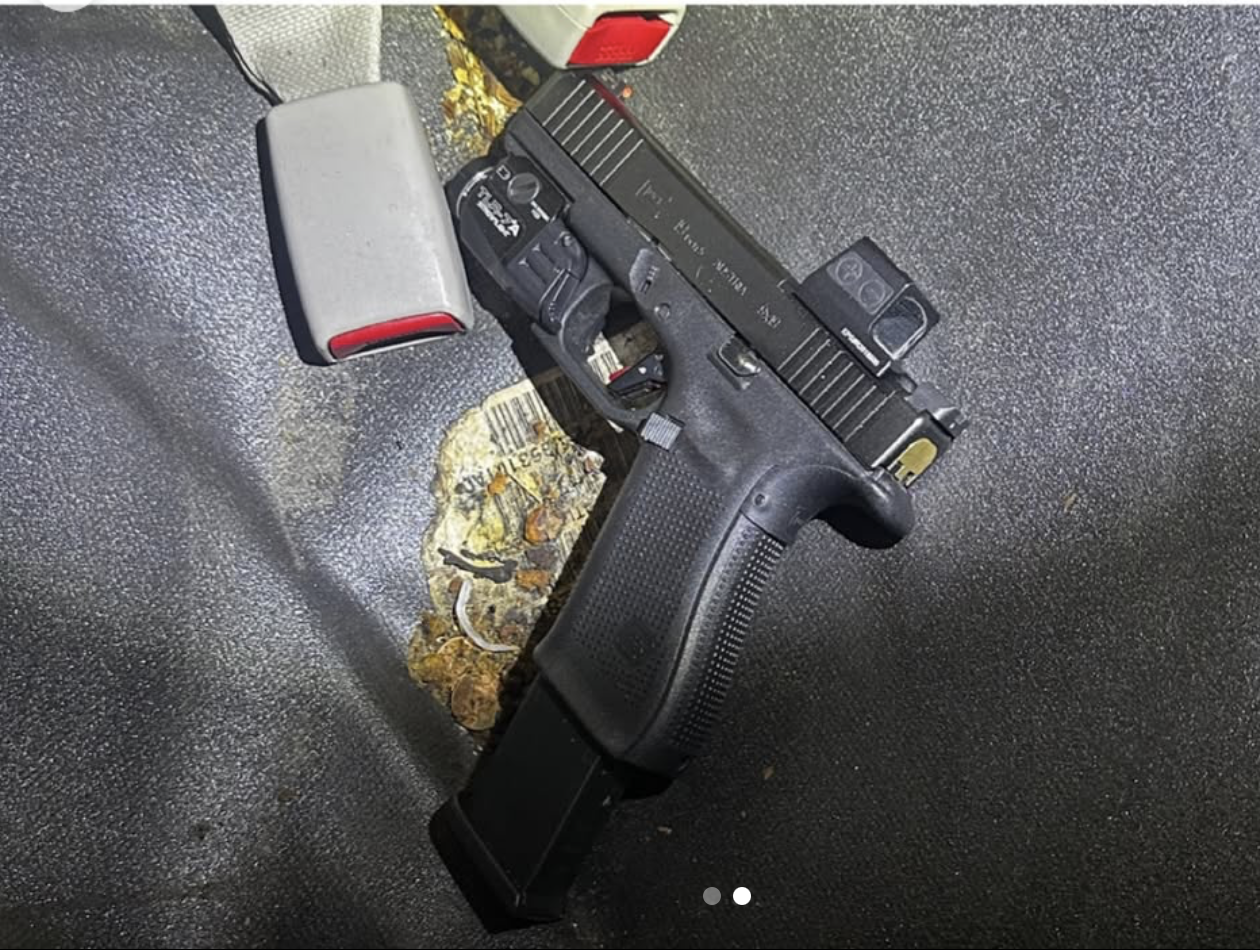
The holler of Joe Firstman is a well-known thing on the beaches and byways of El Porto.
The singer-songwriter first came to fame as a fresh-faced kid straight out of Carolina touring the country’s biggest stages with Willie Nelson, Jewel, and Sheryl Crow. He became locally famous when he escaped the Hollywood high life and set up camp on 38th Street in North Manhattan Beach, aka El Porto. Songs were sung from the beach and back and music flowed from the little El Porto house where he lived, as a steady stream of some of LA’s finest musicians arrived to share in the groove.
There were hollers aplenty.
Firstman has frequently been lauded as a descendent of California’s golden era of singer-songwriters, the 1970s’ heyday of Warren Zevon, Jackson Browne and Neil Young. “Firstman aims to reinvent the milieu for his own generation,” wrote critic Jim Farber in the New York Daily News. But it’s more to the point to see him and his music emerging from a longer lineage that includes mountain pure bluegrass singers such as the Stanley Brothers as well as beat poets and holy-smoked yea-sayers such as Jack Kerouac and Allen Ginsburg.
Firstman, in other words, didn’t just want to write songs. He wanted to be a song. And so when his four year gig as Carson Daly’s music director came to an end three years ago – a job that allowed him to play with everyone from Quincy Jones to his own hand-picked band of “ninja badass” musicians hailing from Inglewood to Waco, Texas (and everywhere musically in-between) – Firstman bought a Ford 350 “Dually” truck, dubbed it the Silver Bullet, and hit the road.
He left behind not only California but any sense of home and any leftover rock star notions of success as a gilded Sunset Strip fantasy dream. Firstman’s intent was to live solely for the sake of the song.
“I have no other choice but to start writing better songs,” Firstman said at the outset of this stage of his career. “It’s the only game. Nothing works in my proverbial plan unless the songs continue to get better.”
Now, a couple hundred thousand miles, several hundred gigs, and a bucket-load of songs later, Firstman is returning to the beach. He’s bringing with him a small band of musical brothers who he accrued on the road, called The Cordovas, and a brand new batch of songs that will soon be The Cordovas’ second record.
Firstman’s intention has always and only been to get back to California generally and the South Bay specifically.
“I left only with a purpose to get back,” Firstman said this week. “After so many years, so many gigs…California was on me, in me, and with me still. Cali, dude – it is a powerful thing, and I know how to use it. And every single walk up that street is a wonderful one. This is a serious place. You’ve got to go away from it to truly appreciate it.”
“It’s trippy. It is as unbelievable as it was…because it truly is ‘oh-my-God-worthy.’ One of the things in departing was I’ve got to work hard enough to get back to this place.”
Firstman made several runs across the country, sometimes utterly alone, other times with a small band, and in the first iteration of The Cordovas in a tour bus. The band will hit a peak this week when they play to a crowd in the tens of thousands at the Wakarusa music festival in Oklahoma, but they are nearly as excited to play a pair of shows in Hermosa Beach next week – first at Boogaloo on Sunday night (where the band will hold down a residency of sorts this summer), and then Wednesday night at Saint Rocke.
The band, and Firstman in particular, is in full stride, musically. If forced, you’d have to classify their sound as Southern Rock, but in so doing you’d better think of mountain music and down-home gospel as well as some good old-fashioned psychedelia. They sing harmonies that manage to be more than just pretty, possess a downright Dead-like link to American musical mythology, and also happen to have jazz cat chops.
And Firstman has returned not only with stronger songs but with an utter command of how to delve into a moment and mood and thereby transform a room.
“The main task was to go out and find, ‘Do you really like this?’” Firstman said. “Because if you really like this then you are going to be able to appreciate going to a place where there are only a small handful of people after an enormously long and lonely drive every day for the next few years…If you don’t like this, no problem, just bow out, just pull off the road. And what I found is not only did I like but I loved it as much as I always thought I did. More so, I realized any other peripheral reason as to why I was doing it was nothing compared to the spiritual reason. Any other kind of adoration or accomplishment, none of it makes anything as wonderful as to just to be able to capture the moment and be a part of it, the deliverer of that.”
The juncture, the joining
A fork in the road appeared in February of last year. Firstman was two weeks into an eight week, 40 dates in 30 states tour. He’d just pulled into Nashville when a rift emerged in the young band he’d brought along. Every member left the tour.
A phone rang in a small town in North Carolina. Toby Weaver had grown up just down the street from the Firstman family in Charlotte. He’d started playing guitar at the age of five, and he and his brothers had a full band set up in the garage – the first time Firstman ever saw drums, amps, and guitars all together in one place. “They had all the cool shit,” Firstman remembered. “It was like, ‘Whoa, that is the same shit as on TV. Far out, man’…That was major.”
Weaver had played in Firstman’s first band in Raleigh, North Carolina, when both were college students. Firstman dropped out after a semester and at 19 took off for California on an $18 Greyhound ticket; Weaver had already left the band, as well as any illusions that he’d ever be anything but a small town guitar picker. Which wasn’t to say he was any less devoted to music – over the next decade, he’d delve deeply into bluegrass, teaching himself mandolin (in an astonishing two weeks) and later fiddle. He played in numerous bar bands, but his musical heart could be found in the mountains, playing into the wee hours at bluegrass festivals every chance he got, which was a lot – he and his wife Audrey constructed a life that allowed for such excursion.
“I figured that was it,” Weaver said. “I figured that would be the rest of my life. And I was perfectly okay with that.”
And so when he picked up the phone and Firstman asked him if he was coming on the road with him, Weaver didn’t feel any particular drive to become a rock n’ roll star. He said yes only because it was another way deeper into the music. He’d just lost his job as an amplifier technician when the guitar store went out of business. His wife backed him; nothing held him back.
Soon Weaver, who’d never toured longer than a week, embarked on a road trip that has yet to truly stop. They played a little town down the road from his home in Ashville, then headed to Washington D.C, Philadelphia, New York City, and finally all points west. And if Firstman liberated Weaver from the workaday world, Weaver brought Firstman back to his deep-down southern roots. He’d already been stripping back his sound; now, it took flight. Emblematic of the change was a song that had been called “Philadelphia”; it became “Carolina” and took on a decidedly southern feel, accompanied by Weaver’s beautiful, Irish, whisky-soaked fiddle playing. “Take me away down to Carolina/that’s where I’ll be…” Firstman sang.
In Weaver, he’d found the perfect musical counterpoint. He was already on a path to a truer sound, now he’d found a signpost and a fellow traveler. Firstman had always played with high echelon musicians, but this was different.
“There have always been guys around,” Firstman said. “But nobody plays like Toby because he’s never intended on being a professional musician. So the fact that it came out of something that was unassuming makes it sweeter, doesn’t it? More soulful? And that was something that my music desperately needed. He didn’t want to be a big star; he wanted to go play on a bench at a bluegrass festival on a weekend. We simply dragged him on stage and said, ‘Alright, explode.’”
And explode Weaver has. The Cordovas are a full-on rock band that is anchored by Weaver’s playing and Firstman’s singing, writing, and incredible musical versatility (guitar, bass, keyboards). Weaver, in fact, will lead a stripped back version of The Cordovas – think the White Stripes, with just Weaver playing electric blues and drummer Sam Mogerman – who will hold down the Boogaloo residency this summer.
“It’s really weird man. I never would have thought in a million years I’d be doing this at the age I am now,” Weaver said. “From the time I was 18 or 19 I just decided I was going to play for myself, learn what I wanted to learn, and that was pretty much it. That was as far as I really wanted to take it. It never occurred to me to try to pursue this as a full time deal. This is an unexpected chapter.”
There is a moment on Firstman’s last solo record, Swear It Was a Dream, on a song called Angel Moon in which Weaver’s fiddle joins in as Firstman sings about the sun going down “dust and desert rose.” The song, which is in part based on a notion of the novelist Marcel Proust, is as deep a love song as has been contributed to the American canon in a long time. The fact that Firstman, who didn’t read as a kid, has delved into this kind of deep attention is a reason why he and The Cordovas and the music they are making is something different than what we have heard before.
“The subject is a girl but really the scene and the movement in the song is the progress of the man’s understanding of the girl,” Firstman said. “In that way I say it is not a love song – but of course, they are all love songs. Every single story is about love. Because it is, because love comes down to every single word, and how you say every word.
“That song was about growing up. About me seeing things differently and saying to my audience, ‘If you guys are still out there, I’m learning some things, and what were all thinking about and what we loved when we were younger has changed now but we haven’t lost our romantic sense. We are still that person, I’m still there and I’m still coming through….But its more refined because I am more refined. I am older. We want to write something that we can sing forever. ‘Roses are red and violets are blue’ really blew our minds when were young men and we were thinking about our first loves. But now we know we can love anyone, and we know our hearts are capable hearts, and so now we have to figure out what to do with them instead of always celebrating that we have active hearts. We have to have active souls.”
The Cordovas play Café Boogaloo June 3 (and subsequent Sundays) and Saint Rocke June 6. ER








